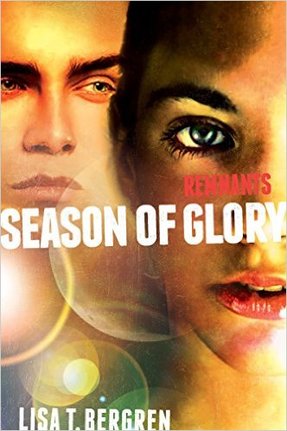 Interview by Brock Eastman Featuring Season of Glory The power of the Remnants and their people are growing, threatening Pacifica’s careful plans for domination. Among the Trading Union, village after village, outpost after outpost, and city after city are drawn to people of the Way and agree to stand against those who hunt them. As the Pacifica government seeks to annihilate the Remnants, the emperor Keallach finds himself focusing instead on his lost brother…and Andriana. While her heart belongs firmly to Ronan, Andriana still feels a connection to Keallach she can’t deny. But welcoming him as a Remnant may mean leading the enemy directly into their ranks. “…accelerating action and heart-pulling surprises…” –USA Today’s Happy Ever After blog Lisa T. Bergren’s Remnants series brings to life an exciting group of character and locations, her voice adds depth and intrigue that few other authors are able to do. The final book in the Remnants series is out and available now. Brock: Lisa, what inspired you to take on a dystopian style series? Lisa: With teens in the house, it was impossible to miss The Hunger Games and other dystopian novels. But most of the series I read left me missing an element of hope—which I think can only be found by incorporating a God-aspect. So I began thinking about how I’d go about doing it and yet still be accessible to the general market. I always love to write books that my teen daughter could hand to anyone in her public school. Brock: Weaving in the truth hope only our God can provide, is so critical for teens and as mentioned is so often missing. Who are the main characters and what makes them unique. Lisa: Remnants centers around teens who were all born on the same day, with the same birthmark. But each of them has different gifting. Andriana is an empath—meaning she can sense what others are feeling. Tressa has the gift of healing. Vidar can discern good from evil. Chaza’el sees the future. Keallach and Kapriel each have miraculous powers. Brock: In three sentences, what is this book about? Lisa: It’s about a group of kids, born to save the world on the brink. It’s about discovering your own unique gifting and utilizing those gifts for the good of all. It’s about finding hope and love even when all seems dark and dismal. Brock: Do you outline the entire book before starting, or do you write as you go and let the characters take control of the story? Lisa: I have a general sense of what’s going to happen at the end of each book in a trilogy, creating an overall arc. But most of the time I write by the seat of my pants; I love to see what surprises emerge in each story I write. Brock: How do you believe this story relates to the lives of readers? Lisa: My hope is that every reader would understand that they’ve been divinely gifted to change and better their world. Brock: What is your favorite genre to write for? Lisa: Right now, I’m in love with the teens! They’re so responsive, interacting me on Facebook, Twitter, email, Instagram. And those adults who read YA too seem particularly friendly. So I think I’ll stay in this arena for a while. Brock: Any certain research required for the book, or is it all from your imagination? Lisa: Most of my previous books have required historical research, knowing what had happened and when, and how that might impact my novel’s characters. This series was a challenge because I had to read about political, ecological and religious trends, and extrapolate what I thought a likely scenario might be. Since it’s a dystopian series—the opposite of a utopia—I figured I’d set it post-WWIII, with society resorting to a medieval/feudal sort of system as a fallback. Brock: How do you strike the right balance in your book? Lisa: I’m an action girl…but I try and not to wear my readers out. So a strong romance thread helps to create intimate, quieter moments. It’s definitely a rhythm I feel, and that ebb and flow is a natural part of every chapter I write. But man, do I love those action scenes. They just fly…I see them as a movie in my head. The romance scenes take me a lot longer to write. Brock: Are you working on the next book in the series? Lisa: Season of Glory is the third and final book in the series, so I’ve turned back to time travel. My next novel is about a contemporary girl who finds herself in 1840 Mexican California…it’s been a blast to write. And I’ve decided it’s easier to do historical research than extrapolating about the future! Brock: Are you a full-time or part-time author/writer? Lisa: I’m a part-time writer. My husband makes ducks out of old ranch fence posts and that crazy business has exploded…so I really have to fight to find time to write. I usually have a book I’m thinking about, and do the research, then I sit down and crash it out. Fortunately, I’m a really fast writer, when I have the time and focus. Brock: How long does it usually take you to write a single book? Lisa: A couple months to think about it/research it, and 8-12 weeks to write. Brock: In what ways does your faith impact how you approach writing? Lisa: Faith is a part of my life, every day. To not allow it to impact my writing would mean building a wall, holding back on the most important thing in my life. Sometimes the spiritual themes are strong—like in Remnants—and sometimes more subtle—like in my time-travel novels—but I believe you can hear whispers or shouts about the God who saves and loves us, in every book I write. Brock: Favorite place to vacation? Lisa: Italy; been five times and going again this fall! Inspirational for me as a writer (we usually go where I set my books); relaxing for me as a woman needing a serious break. Brock: Favorite season? Lisa: Autumn; perfect temperatures, amazing colors, fires in the fireplace but still warm enough to go and hike! Brock: Do you listen to music while you write? If so, what are some examples? Lisa: Film scores all the way. My favorites are still “Gladiator,” “Last Temptation of Christ,” and “Braveheart,” but I have a playlist of various songs that runs a good two hours. Brock: What are your top three most unique travel experiences? Lisa: Floating in the Dead Sea (it’s like you’re on an inner tube); Ugandan mamas singing to us and dancing with us when we arrived on a mission trip (unforgettable; BeautyforAshesUganda.org); watching a sunset over a medieval Tuscan village, complete with tower and wall, with bells ringing in the distance. Brock: You clearly love to travel. Where did you go last? And where to next? Lisa: We do!! We’re not very good about saving for retirement when there are places to see…Last up was a family trip to Scotland, where we saw tombstones with the clan name and Highland vistas that took our breath away; next up is Kauai with my hubby; and we’re talking about California this summer and Italy come fall. But I gotta sell a lot more books… 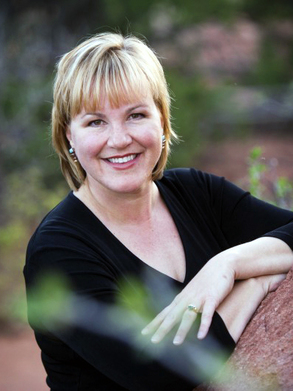 Author Website: LisaTawnBergren.com Author Facebook: facebook.com/LisaTawnBergren Author Twitter: @LisaTBergren
0 Comments
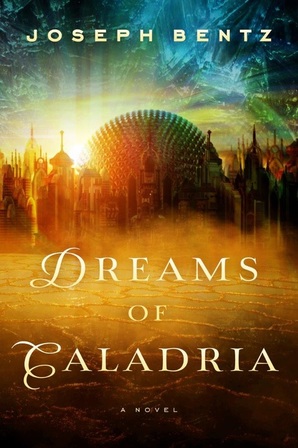 Interview by Brock Eastman Featuring Dreams of Caladria “Through the breaking ice, in a vortex of brilliant light, energy, and sound, Jeremy plunges into a dangerous and mysterious new world.” After reading that I wanted to learn more about how this moment in Dreams of Caladria came about so I reached out to Joseph Bentz for an inside look. Brock: Joseph, first, thanks for giving us the inside look on your release. I understand Dreams of Caladria has an unusual history. Could you explain that? Joseph: Yes, the strange background of this book is one reason I am thrilled to see it released. In 1995 Thomas Nelson published my first novel, a fantasy novel called Song of Fire. It was well-reviewed, but right as it came out, Nelson changed publishing strategies and moved away from fantasy for that period. The novel faded from view. Now, on the 20th anniversary of its original publication, it has been republished by Enclave Publishing, with a new title, new cover, and new ending (the one I had originally wanted the book to have). I also have some bonus material about my book on my website. Brock: It can be exciting to finally put the end of story how you’d always meant it to be. I had a similar situation with Sages of Darkness and now I’m making changes to the characters and plot that I’d first planned. Joseph, how did you come up with the idea for Dreams of Caladria? Joseph: That is an unusual story too. The original book itself took me 10 years to write. I started it while I was in college, but some of the ideas had been bubbling up in me even before that. The world of the book and the people who inhabit it gradually came to life over those years, and I wrote scene after scene, not really knowing where the story was headed at first. Because of that unwieldy method of writing, the first draft ended up being about 1,200 pages long. Not only was it long, but the plot was so sprawling that I knew it wasn’t publishable in that form. I took those 1,200 pages as raw material for a whole new draft and started again. By that time I had learned more about how to structure a novel, so I managed to tell a more coherent story, this time in about 600 pages. Then I wrote a proposal and started sending it out to publishers. Brock: That’s an amazing amount of material to sort through and pair down. Was the length of these drafts what made it take 10 years to get this book finished? Joseph: The length was part of the problem, but because I was also in college and graduate school and then working full-time during those years, I kept getting stuck on the book and setting it aside. Whenever I set it aside, thinking that I needed to resolve some plot issue or other problem before I started writing again, the story would go a little cold, and then it was even harder to start back up. Brock: It’s true, when I get into the flow of writing I hate to stop. When the words begin to pour out stopping them can be a dangerous thing. Did you ever overcome that problem? Joseph: Fortunately, yes. Eventually I felt embarrassed that it was taking me so long to finish the novel. I decided I should either commit to finishing the book or else give it up altogether so I could go on about my life. After prayer and reflection, the discipline I settled on was that I would work on the book every day until it was finished. And that’s what I did. I did not miss a single day, no matter how tired I was or uninspired or ill or busy. For me, knowing that I had to push the story forward every day kept it alive in my mind, and I was able to finally get it done. Brock: Perseverance. You mentioned that the original publisher did not let you use the ending you wanted. Why was that? Joseph: The editor who was championing this book at Thomas Nelson, Jan Dennis, was having trouble getting it through the publication committee. At first, they simply rejected it. Then he had me make changes based on what some reviewers had said. I had to cut the manuscript from about 600 pages to about 450 pages and change the ending and a few other plot points. I was a first-time author and didn’t know how much I could negotiate, so I ended up making a few changes I wish I had resisted. The ending was one of those. When I say “ending,” I really mean the last page of the book, so it’s not a radical change. But that has always bugged me, so I’m happy to be able to fix it now. We’ll see what readers think. Brock: I may have to find a copy of the first edition to compare. In a few sentences, what is Dreams of Caladria about? Joseph: The main character, Jeremy, falls through the ice in a lake and plunges into a mysterious new world in which music is prohibited. Because he arrives there in a swirling cloud of light and music, he is in trouble from the start. He doesn’t know why he has been sent there, but he finds himself pulled in opposite directions by those who want to manipulate or kill him and those who want him to lead them to a promised land in which the music, which is inhabited by the Spirit of God, has free reign. Jeremy is in the middle of a battle of forces beyond his control, and the choices he makes will determine not only his own fate, but also the future of the world he has entered. Brock: I notice that you have written books in a variety of genres—a fantasy novel, three contemporary novels, and four books of non-fiction Christian living. Why so many different kinds of books? Joseph: I have always written whatever book is strongly gripping me at the time. I know that in traditional marketing or branding terms, the advice is usually to choose one genre and stick to it, I haven’t been able to do that. I really felt that I had to write each of these books, and fortunately it has worked out that they have found publishers and some readers. Brock: Which is easier, writing fiction or non-fiction? Joseph: I usually think the easier genre is whichever one I am not doing right now! Both of them have their challenges. With fiction, one of the hardest things is keeping the entire world of the novel in your head for so long—the characters, the plot, the details. For me, it is almost like having an alternate reality that I enter into each day. When I’m working on the novel—and sometimes even when I’m just going about my “real” life—that world of the novel becomes very real to me in a sense. When I am telling the story, it feels more like I am remembering what happened rather than making it up. But that knowledge—and the best way to tell it—doesn’t come easily. On the other hand, non-fiction has its own challenges. There is a much heavier research burden with non-fiction. For me, it’s harder to keep the writing momentum going when I’m writing non-fiction. When I’m writing a novel, I can hit a groove in which the story really moves along, but with non-fiction, there are lots of stops and starts, second-guessing, throwing out paragraphs, and so on. Writing is just hard in general. But I love it too. Brock: In addition to writing books, you are also a literature professor at Azusa Pacific University. Does having that kind of full-time job take away from your writing, or does it fit well with being a writer? Joseph: For me, the combination works very well. I am fortunate because I love teaching, and I love writing. I wouldn’t want to give up either of them. My university has been very supportive of my writing, and my academic schedule allows me some time to do it. Being with students is very energizing for me. I love teaching literature. I also love working with so many other creative colleagues. There are days when I feel overwhelmed by too many papers to grade or too many meetings to attend, but overall I am glad to be out there in the teaching world, and then after teaching for awhile I am ready to hide away and focus on writing. Brock: Are you working on a new book? Joseph: Yes, I am finishing a new non-fiction book that is scheduled for publication by Beacon Hill Press later this year. The working title is Nothing is Wasted. The idea is that God has sprinkled redemption throughout the universe in ways that are easy to overlook. Although life is filled with pain, I believe there is also a countervailing force at work in the world. In the midst of all this loss beats a relentless pulse of redeeming love and good that pushes through the chaos and pain. It does not obliterate the pain, but it does not allow it to be wasted. Good is wrenched from it, like a gold nugget pried from deep underground. I examine these redemptive hints in a wide variety of places—in tragedy, in popular entertainment, in nature, and elsewhere. It has been a fascinating book to research and write. Brock: Joseph thanks for taking the time to share with us about your writing journey and your re-release with Enclave titles Dreams of Caladria. 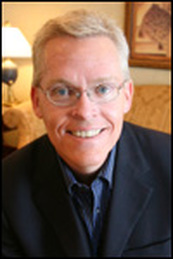 Author Facebook: https://www.facebook.com/joseph.bentz.9 Author Twitter: https://twitter.com/JosephBentz 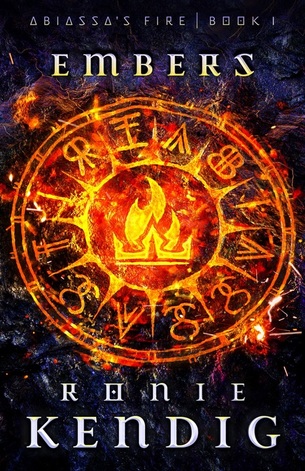 Interview by Brock Eastman Featuring Abiassa's Fire Brock: How did you come up with the idea for this book or series? Ronie: It was a fluke, really. I was watching BBC’s Merlin and got annoyed with the actions of a character. But then I was like—What if a sister truly did make a big sacrifice for her brother, for the kingdom? And that was the seed-germ for Embers. Brock: In three words, what is this book about? Ronie: Loyalty and surrender. Brock: Do you outline the entire book before starting, or do you write as you go and let the characters take control of the story? Ronie: When I write my suspense novels, I generally use a skeletal outline that I draw out on my grease-board wall in our basement. But for speculative novels, I am mostly a seat-of-the-pants writer. Regardless of genre, however, I always let my characters show me the way. Brock: How do you believe this story relates to the lives of readers? Ronie: I think many readers can relate to situations in families that ply at our courage and happiness, and I believe many have stepped into situations they didn’t feel ready for, yet they warrior on and find joy, sometimes even success. Brock: How many books are planned for this series? Ronie: There are 3 books planned in the Abiassa’s Fire series. Brock: Any certain research required for the book, or is it all from your imagination? Ronie: Part of my joy in writing speculative is there’s a lot you don’t have to research. But with Abiassa’s Fire, I ended up doing research on many different aspects and elements of fire. It’s been fascinating! Brock: Are you working on the next book in the series? Ronie: Yes! I am working on book 2, Accelerant, right now. Brock: Can you give us a hint at the next book in the series? Ronie: There have been some really awesome surprises with this story, and it’s been a little haunting that some of the elements I’ve foreseen since the series started are actually speaking to me in my own life and in my own trials. In this book, Haegan wrestles with and even attempts to flee his role as the Abiassa’s hand of judgment. Brock: Where do you like to write? Ronie: I prefer to write at a desk or table. Some authors are able to cozy up in a recliner and write, but I tried that. I would only sleep for hours, not write! Brock: Are you a full-time or part-time author/writer? Ronie: My agent said I’m a full-time writer, but I’m not sure I’d say that yet. I still homeschool our sixteen year old twins, and that takes up a good portion of my time, because work and ferrying them to their different organizations and co-op. Brock: How long does it usually take you to write a single book? Ronie: I’ve been hammering out books in 3 months, but I am really pushing back on that, because I haven’t been able to give the books the attention I’d really like them to have. From this book (Accelerant) on, I have six months with each title, and I’m relieved. Brock: What’s your view on e-books and the new publishing revolution? Ronie: While I think e-books are amazing and I have an iPad mini that goes with me for on-the-go reading/writing, I strongly prefer a real book in my hands, and many of my readers have reported the same. I think it’s terribly convenient to have a dozen books on a device, but I also find it cluttering—because in reality I have hundreds on the device and haven’t read them. And with research starting to find connections between lack of focus and long-term memory, I am shifting more and more back to a traditional book. Besides, I’ve always had a love affair with hardcover books. Brock: Describe your feelings when you opened the box and saw the first published copies of your very first book. Ronie: While Embers wasn’t my debut title, it was my very first speculative book—it was the birth of a long-held dream…and seriously? I cried. I was so elated to have that dream finally come true!! Brock: Coke or Pepsi? Ronie: Pepsi! Brock: Soft shell or Hard Shell tacos? Ronie: Soft shell! Brock: Favorite season? Ronie: Fall, especially in Northern Virginia! Brock: Do you have a particular drink or food you consume when you write? Like coco, raspberry tea, animal crackers? Ronie: I’m totally smitten with the grande caramel brulee at Starbucks and it is getting me through edits and writing. Brock: Do you have a favorite Bible verse? Ronie: Exodus 14:14 is my life verse, a reminder that I don’t have to fight all the battles. Some of them, I need to step out of the way. 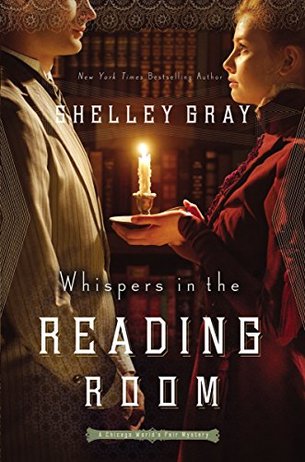 Interview by Brock Eastman Featuring the Chicago World's Fair Mystery Series Brock: How did you come up with the idea for this series? Shelley: I began writing the Chicago World’s Fair Mystery Series after learning about the ‘White City’ that had been built for the 1893 World’s Fair. I was intrigued by the idea that a group of large buildings were carefully designed and constructed for an event that were never intended to last. For Whispers in the Reading Room, I wanted to write a novel focusing on two people living on the outskirts of Chicago society. The first two books focused more on parties and galas surrounding the fair. Brock: Tell us about the main characters? Who are they, what makes them unique. Shelley: The hero and heroine for Whispers were very different than my usual characters. The hero is Sebastian Marks. He’s a gentlemen’s club owner. He grew up in the streets of Chicago and educated himself. At first glance, he is everything polished and perfect. However, he is absolutely not what he seems to be. The heroine is someone who is his complete opposite. Her name is Lydia Bancroft. She’s a librarian and is drifting on the fringes of polite society. She’s lived her life mainly in books. Pretty much the only thing Sebastian and Lydia have in common are their love of books-and the fact that neither likes to do what is expected of them. Brock: Give us one fact about each main character that no one else knows. Shelley: Oh! Fun question! For Lydia, she’s far smarter than anyone realizes. She’s also far more curious. For Sebastian, no one knows that his mother was a prostitute. Brock: In three sentences, what is this book about? Shelley: There’s a recent string of murders in a run-down section of Chicago called Camp Creek Alley, where Sebastian Mark’s notorious club, the Silver Grotto, is located. When a wealthy gentleman dies right outside the club, everyone in the area is a suspect-including the owner of the club and one quiet librarian who wasn’t supposed to be there at all. Before the mystery is solved, four persons’ secrets are unveiled. Brock: Do you outline the entire book before starting, or do you write as you go and let the characters take control of the story? Shelley: For these mysteries, I wrote a pretty good outline of the story. However, my characters always dictate what happens. Often, they pull me into unexpected places! That, for me, is the best part about writing. Brock: How do you believe this story relates to the lives of readers? Shelley: Much of the book is about accepting one’s imperfections and moving forward through faith and perseverance. I think everyone, to some degree, makes mistakes at one time or another. I hope readers might find the theme of redemption and forgiveness to be meaningful. Brock: What is your favorite genre to write for? Shelley: I love to write romances, and that is my favorite genre read and write. I usually enjoy anything I am writing, whether it is about the Amish, a western, or in this case, a book set in the gilded age in Chicago. Brock: How many books are planned for this series? Shelley: There are three books in the Chicago World’s Fair Series. Each can be read as a stand-alone novel, though they are loosely related. Brock: Any certain research required for the series, or is it all from your imagination? Shelley: I did a lot of research for this series. I traveled to Chicago three times and visited with many people in both the Field Museum and the Chicago History Museum. I also read other books set during the time period and watched DVDs about the history of Chicago. Though there are several things that I made up in the novel, much of it is based on real places and events. Brock: How do you strike the right balance in your book? Shelley: For me, I like to write books that I want to read. Because of that, I try to have the plots be intriguing and fast-paced. I never know if I’ve succeeded until I hear from readers. Brock: What do your readers think about your latest series? Shelley: I’m happy to report that I’ve gained many readers who enjoy historical novels and romances but aren’t Amish romance fans. Some longtime fans of my books have been surprised by this series. I’m simply thankful that I had the chance to write these three novels. Brock: Are you working on the next book in the series? Shelley: Whispers in the Reading Room ends this series. I’ve already written The Loyal Heart, the first book in my next historical series. This series takes place in Texas right after the Civil War. Brock: Are you a full-time or part-time author/writer? Shelley: I’m a full-time writer. I write about 5 to 6 books a year. Brock: How long does it usually take you to write a single book? Shelley: I always write more than one book at a time. I usually write an Amish book in about three months and a historical in about 6 or 7 months. A lot depends on the deadlines! I write 10 pages a day, six days a week. Brock: When did you realize you wanted to become a writer? Shelley: I started writing when I realized I had forgotten a book when I was at work one day. I knew I wanted to become a writer when I joined a writing organization. There, I realized that my fun ‘hobby’ could one day become a reality. Brock: What was your favorite book as a teen or child? Shelley: My favorite book was Alice in Wonderland. I loved the idea of going into a different world. I loved Gone with the Wind, too. That was the first book I remember that transported me to a different place and time. Brock: Coke or Pepsi? Shelley: Diet Coke Brock: Soft shell or Hard Shell tacos? Shelley: Hard Shell! This drives my husband crazy. Brock: Favorite place to vacation? Shelley: We love to travel and often go on cruises. Brock: Favorite season? Shelley: Fall. Brock: Favorite hobby? Shelley: Taking care of our dachshunds! We have two dachshunds that we rescued. I love to take them for walks. They sit in my office when I write. Brock: Is there something you’d like to write but haven’t? Shelley: I hope to one day write a contemporary suspense novel. I’ve started one several times. One day I’ll decide that it’s time to show my idea to someone else! 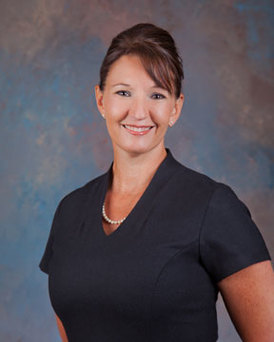 Author Website: shelleyshepardgray.com Author Facebook: facebook.com/ShelleyShepardGray Author Twitter: @ShelleySGray Author Pinterest: Shelley Shepard Gray 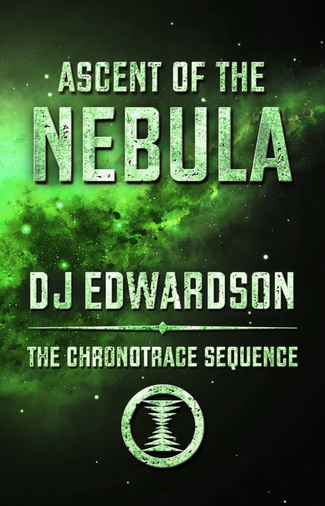 Interview by Brock Eastman Featuring The Ascent of the Nebula With the Developers’ plans to reengineer the human race in disarray, this may be the one chance Adan and the Sentient renegades have of saving the desert world of the Vast. Using the chronotrace, a device capable of looking back in time, Adan discovers their next point of attack, but a window to the past can’t prepare him for what the future has in store. He will have to risk his life, his future, and everything he’s fought for if he hopes to survive. The third and final book in The Chronotrace Sequence brings the series to its thrilling conclusion as threats long thought buried are resurrected from across the vagaries of time and space. Inspired by the Dead Poet’s Society, DJ Edwardson took the phrase Carpe Diem to heart and set out to explore the vast reaches of his imagination and share the stories he discovers with readers all over the world. He brings the The Chronotrace Sequence to life with a captivating look at a future, none of us would want and the very human struggle to stop it from happening. Brock: DJ, how did The Chronotrace Sequence concept come about? DJ: The Chronotrace Sequence started out with the premise of what the world would look like without Christianity. Originally I had the main character stumbling upon an actual believer and rediscovering what faith was, but as the plot developed over the years, the story became more about a society where technology has taken over everything and God’s role in the events became more covert and less obvious. Brock: Who are the protagonists and why are they unique? DJ: The main character is Adan. What makes him unique is that he has completely lost his memory. Not just his identity, but he doesn’t even know basic things like how to eat or walk. So even though he is an adult, in the early parts of the story he functions very much like a child. Add to that the fact that the technology in this series is extremely advanced and Adan has a hard time getting his bearings. One of the main story arcs is his journey to find his identity which adds an element of mystery to the story, I think. Gavin is the other main character and he functions as a mentor to Adan, helping him orient himself and even training Adan to use certain skills he has. He provides a window into the organization of scientists who control everything and shows that God can reach even into that kind of world and pull someone out of it. Brock: Would you share a little unknown tidbit about these two characters? DJ: Ooo, reveal my secrets, eh? That might be pretty hard with Adan since he’s lost his memory, but I’ll tell you something as an author about him that no one else knows. His name is Spanish for “Adam” As I originally envisioned him as sort of this prototypical experiment by the scientists who control the society. As for Gavin, he secretly has affections for one of the female characters, but I won’t tell you if those ever get realized. You’ll have to read the book! Brock: In three sentences, is the third book, The Ascent of the Nebula, about? DJ: The futility of trusting in our own power over God. The book also explores what it means to be human. And it also wrestles with the mysterious nature of God. Brock: Do you outline the entire book before starting, or do you write as you go and let the characters take control of the story? DJ: I did outline the second and third books, but not the first, although it was rewritten and changed so many times it sort of felt like I was writing with an outline past the first draft. Brock: How do you believe this story relates to the lives of readers? DJ: Hardly a day goes by when I don’t hear something on the news and think, “Yep, we’re one step closer to the kind of world I wrote about in the Chronotrace.” Cloning, virtual reality, the increasing role of technology in our lives, that’s all happening right now and most people seem blissfully unaware of where it’s all headed. Science has become the standard for truth that trumps everything else. All you have to do is say “well, science says…” and the argument is over in most people’s minds. As if science is this monolith and has totally figured out the meaning of life, humanity and everything in between. It really functions very much like the magisterium of the church in the Middle Ages. They have all the answers, we are all just ignorant and have to accept what they say “because science.” We can’t think for ourselves, we can’t dissent. We just need to get in line and bow the knee to the technological idol. And that’s the world of my story and hopefully people who read it will see that it’s not a very attractive one. Brock: What is your favorite genre to write for? DJ: Actually it’s fantasy. In fact, my next book after this series is is a fantasy novel and I am way excited about that. A total change of pace from what I’ve been writing, but this science fiction series has been fun to write as well and parts of it will probably feel a little bit “fantastical”. It’s not all laser guns and warp drives and all that. If you think about it, Star Wars is really fantasy in space with jedi “knights” and princesses and the mystical “force” behind it all. The Chronotrace Sequence has some of those sorts of elements as well. It’s not “hard” scifi is what I guess I’m trying to say and has some of that “fantasy” feel to it. Brock: How does it feel to have your work published? DJ: Well, I’m on my third book now, but I remember sitting down and reading the printed copy of the first one and wow, it was a little surreal. At times, I got so lost in the story that I forgot I had actually written it. That was really neat, just to feel like the story had sort of taken on a life of its own. A really great feeling. Brock: Is it difficult to be accurate to a biblical perspective or biblical facts when writing fantasy fiction? DJ: Yes and no. Yes in the sense that Christianity is a historical faith. We have God’s words spoken in history, we have events tied to places and specific time. David, Moses, Peter, Paul. These were real people who lived real lives. And fantasy just throws all that out (most fantasy anyway and most scifi as well). So unlike historical fiction I can’t just drop in bible verses and have them work as is. That’s not to say I don’t paraphrase certain verses or infuse the concepts, but they just don’t come “out of the box” per se. However, in one sense it’s not hard at all because as a Christian, biblical themes and ideas just flow out of you into your writing because that’s what’s in your heart and mind. It’s the most natural thing in the world in that sense. If Christ really is your first and best thought, that will come out. It may be understated at times, but it will be there. Brock: What is the biblical background or basis for the series? DJ: I really think of this series as futuristic “pre-incarnate” Christianity. Okay, that was a mouthful. What I mean is that it has a more Old Testament level of revelation and yet it’s set in the far future. So some of my inspiration for the events of the novel comes from Exodus, Old Testament prophets, and, though not strictly biblical, the story of the pilgrims. It’s an odd mix, but those are some of the places I drew my inspiration from. It also wrestles with the idea of what to do when God’s will is not all that clear. Even for those of us who have the bible, there are mysterious aspects to God’s will that we cannot fully understand and the characters in this series have to learn to have faith in a God they cannot see or hear just as we all do. Brock: What do you hope readers take away from the series? DJ: I hope they have an appreciation for what it means to be human, the value of friendship and family. And also I hope they are encouraged to trust God even when the path isn’t all that obvious. Brock: What are some of the strongest influences on your writing? DJ: C.S. Lewis and Tolkien are the biggest influences on me. Specifically the Space Trilogy was probably the biggest influence on this particular series. In addition to that, it was actually a couple of essays on the purpose of literature which they wrote, one by Lewis and one by Tolkien that really inspired me to want to take up the pen and write in the first place. The essays are On Fairie Stories by Tolkien and On Stories by Lewis. You definitely should pick them up if you haven’t read them. Brock: What are your hopes for your future as an author? DJ: Well, it’s hard to plan too far out, but after my fantasy novel releases I plan on starting another fantasy series aimed at a younger audience. My youngest daughter is currently eleven and even though my stories don’t have any language or graphic content in them they are a little intense for her if you know what I mean. She is very sensitive in that way. So I thought, you know, while my kids are still relatively young I’d like to write something more for them. I’ve been brainstorming on that series and have been scribbling down some amazing little tidbits. Brock: Favorite place to vacation? DJ: Italy. It’s gorgeous. I haven’t been there in a while, but I love the art and the landscapes and the climate and the food. If I could move there I would. Bellisimo! Brock: Favorite season? DJ: Summer. It’s the best time to be active. I like to sweat. I guess I’m just weird that way. But yeah, I’ll take heat over cold any day. Brock: Do you have a favorite Bible verse? DJ: Yes, Romans 8:37-39, “nothing can separate us from the love of God.” That is what I cling to. Brock: Do you listen to music while you write? If so, what are some examples? DJ: Yes, soundtracks, usually. Also if you do a search on Youtube for “epic music” you can find some amazing stuff. If I really like a particular song or album I find there I’ll go out and buy it. But yes, I always write to music, instrumental- no words. I can’t imagine writing without it, it’s part of my creative process. Brock: You use a lot of invented words in The Chronotrace Sequence. Where do you come up with all this exotic terminology? DJ: Well for instance there is a certain people group that speaks another language and so when I mention words from that language I just used Spanish which is the only other language I am fluent in besides English. And then for the technology I used a mixture of Latin, French, and English roots and just combined them in different ways, like for “oscillathe” which is this weapon that disintegrates people, I combined the words “oscillate” and “lathe”, pretty simple. That’s actually one of the things I love about writing in general and writing scifi and fantasy in particular, getting to make up new words. When you’re describing things that don’t exist in our world, making up new words is a necessity, really. Brock: Do you have a motto or an overall vision for your writing career, something that keeps you going on the tough days? DJ: I can’t actually remember where it comes from, but I’ve heard it said many times in sermons and talks that the duty of the Christian artist is to shine a light on the good, the true, and the beautiful. That’s what I try to do with every book, every chapter, every blog post. To let the world know that there is a great God who is real and who cares about such things. I may not always mention him directly by name, but to the degree that my writing opens up people’s eyes to the good, the true, and the beautiful, that’s how I measure my success. And of course the most beautiful thing of all, the truest truth, the highest good, is knowing Christ himself. 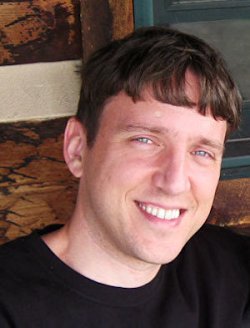 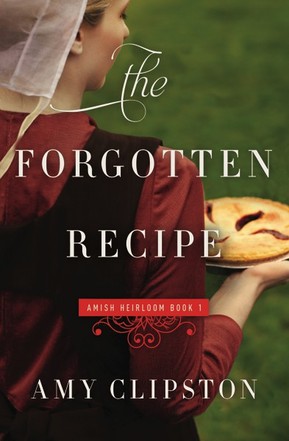 Interview by Brock Eastman Featuring the Amish Heirloom Series After losing her fiancé in a tragic accident, Veronica Fisher finds solace in the old recipes stored in her mother’s hope chest—and in a special visitor who comes to her bake stand to purchase her old fashioned raspberry pies. Veronica Fisher is devastated when her fiancé, Seth, is killed in an accident at work. Seth’s friend, Jason Huyard, was with him and blames himself for Seth’s death. Although Jason has never met Veronica, he feels as if he knows her because Seth talked about her constantly. After the accident, he can’t seem to get Veronica out of his mind. Two months later, Veronica is cleaning the attic and comes across her mother’s old hope chest. She finds an old recipe and soon discovers that baking helps her cope with her grief, so she opens a bake stand to sell her pies. Jason starts visiting the stand weekly and their friendship grows, but Veronica isn’t ready to court again. And Jason harbors his secret regret of not being able to save Seth. Veronica’s mother must convince her that she can’t completely give up on love. But when the truth is revealed, can she forgive Jason for not telling her he was there on that fateful day? Brock: What was your inspiration for writing this series? Amy: The Amish Heirloom series features the fictional Fisher family, who live in Bird-in-Hand, Pennsylvania. The series was inspired during a visit to my publisher’s offices located in Nashville, Tenn., for a meeting. While there, I had the opportunity to brainstorm ideas with my amazing agent and also the talented members of the Fiction team. Daisy Blackwell Hutton, Vice President and Publisher, suggested I write a series about a family with three daughters, located in Bird-in-Hand, and the series was born. I’m really excited about this series, and I look forward to hearing what my readers think of it. Brock: Tell us about the main characters. Who are they? What makes them unique? Amy: Veronica Fisher is the eldest of the three Fisher daughters. She has known since she was a teenager that she wanted to join the church and marry her fiancé, Seth, who passes away in an accident at the beginning of the story. She’s grieving and tries to find solace through cooking her grandmother’s recipes, which she finds in her mother’s hope chest in the attic. Jason Huyard is lost after his friend Seth is killed in an accident right in front of him at work. He blames himself for not being able to save Seth. He becomes obsessed with apologizing to Seth’s fiancée, Veronica, but then finds himself falling in love with her when he meets her. He wants to be with Veronica, but he knows she’ll be devastated when she finds out the truth – that he was there when Seth died – since he wasn’t up front from the beginning. He needs to both forgive himself and be honest with Veronica. When they meet, sparks fly, and they are attracted to each other. The situation becomes more and more complicated as Jason falls in love with Veronica, but is afraid to tell her that he knew Seth. Brock: Give us one fact about each main character that no one else knows. Amy: I always have mental models for my characters and I imagine them when I write the book. My mental model for Veronica was movie star Jennifer Lawrence (from “Hunger Games”), and my model for Jason is British actor Theo James (from “Divergent”). That means readers can imagine Katniss (from “Hunger Games”) and Four (from “Divergent”) together in this book! Brock: In three sentences, what is this book about? After losing her fiancé in a tragic accident, Veronica Fisher finds solace in the old recipes stored in her mother’s hope chest– and in a special visitor who comes to her bake stand to purchase her old-fashioned raspberry pies. Brock: Do you outline the entire book before starting, or do you write as you go and let the characters take control of the story? Amy: I outline each chapter scene by scene and use my outline as a roadmap while I’m writing. The book changes and grows, but the outline keeps me on track. Brock: How do you believe this story relates to the lives of readers? Amy: I believe we’ve all suffered from loss in our lives, whether it’s from losing a family member or a friend. Those of us who have lost someone knows what it feels like to try to have to rebuild our lives and figure out how to pick up the pieces and go on after that loss. Veronica struggles with both overcoming her grief and then dealing with guilt as she feels herself falling for Jason. Brock: What is your favorite genre to write for? Amy: I love writing Amish books. I have an Amish friend who helps me with my research, and I enjoy sharing ideas with her and getting her feedback. I enjoy finding new ways to tell an Amish story. I learn more about the culture with every book I write. Brock: How many books are planned for this series? Amy: The Forgotten Recipe is the first book in my 4-book Amish Heirloom series. Brock: Any certain research required for the book, or is it all from your imagination? Amy: I have an Amish friend who has been helping me with my books since my first book, A Gift of Grace, debuted in 2009. I talk to her on the phone frequently, and she answers my questions. I’m so thankful she takes the time from her busy day to help me with my books. Brock: How do you strike the right balance in your book? Amy: I outline the story, but it sort of flows on its own. I write what feels right to me and let my editor do her magic to make it better. Brock: Why did you choose to focus on a male protagonist? Amy: I enjoy writing from both the female and male point of view, and I’ve been told I do a good job with the male POV. I enjoy watching people and listening to how they speak and react to things, and I try to bring that out in my writing. Brock: Are you working on the next book in the series? Amy: Actually, I recently completed the first round of edits The Courtship Basket, which is book #2, and I’m feverishly writing the first draft of book #3, which doesn’t have a title yet. Brock: Can you give us a hint at the next book in the series? Amy: I can tell you that The Courtship Basket is about Rachel, the middle sister, and she takes a job working as a teacher in an Amish school. Brock: Do you plot or outline the entire series before you begin writing, or do your books take on lives of their own? Or is there a combination? Amy: I plotted this series out before I started The Forgotten Recipe because there is a mystery that will be revealed in book #4. I drop hints in books 1-3, but mystery won’t be explained until book #4. Brock: If your book changed as you wrote it, how is it different than how you originally planned? Amy: My original idea was that Jason was an EMT who responded to Seth’s accident. Instead, my agent and I decided Jason should be Seth’s coworker and best friend which added to the emotional depth of the story. Brock: How much leeway do you give yourself with facts in a Historical genre? Amy: I am always true to the Amish culture, but I do take some fictional license with my characters. For example, Carolyn Glick in A Mother’s Secret was an unwed teenage mother. This may be a rare occurrence in the Amish community, but according to my Amish friend, it does happen. The Amish have the same problems and issues that the rest of us have. Brock: Where do you like to write? Amy: I have a laptop, and I usually write in the family room in my house or in the recliner in my bedroom. Brock: Are you a full-time or part-time author/writer? Amy: I work full-time for the City of Charlotte, and since I write four books per year, I also write full-time. I work four 10-hour days for the City in order to have Fridays off for writing, running errands, and volunteering at my boys’ school. I’m also blessed to have my mother living with my family. She’s a tremendous help with the household chores. Thanks to her help, I’m able to spend any free time at home writing. My schedule is hectic but I make it work. My family is very supportive and thankful for my book contracts. Brock: How long does it usually take you to write a single book? Amy: After the book is plotted out and outlined, it takes me approximately four weeks to write the first draft. Sometimes it takes longer because I have to stop working on the draft in order to complete edits for another book. I always have more than one project going at a time since I’m working on both full-length novels and novellas. Currently, I have contracts to write two full-length novels and two novellas per year. Brock: What do you hope readers take away from the series? Amy: The theme for my books is always hope and faith. I pray my books will give my readers a sense of peace and help them find hope and renewed faith in God. Brock: Expound on the spiritual themes in the series? Amy: My Amish Heirloom series books will all contain the themes of hope, faith, love, and forgiveness. My characters experience grief, loss, and heartache, along with renewed faith and love. Brock: What is your "how I got published" story? Amy: I always wrote as a hobby when I was a child. I started carrying around notebooks in elementary and only shared my stories with a few friends. I accidentally found a local writers’ group after college. I joined the writers’ group in 2001 and signed with my first agent in 2005. I received my contract for my first Kauffman Amish Bakery book, A Gift of Grace, in December 2007, and that book debuted in stores in April 2009. Brock: When did you realize you wanted to become a writer? Amy: Although I wrote for a hobby, I didn’t realize I wanted to become an author until I found the writers’ group in 2001. It never occurred to me that my stories could possibly become actual books until I met other writers and learned how to polish my books. Brock: What are some of the strongest influences on your writing? Amy: I read a variety of books—from Christian fiction to contemporary young adult. I enjoy a good story with romantic elements, no matter what the genre is. Brock: What was your favorite book as a teen or child? Amy: My favorite book was The Outsiders by S.E. Hinton. I read it fourteen times (yes, I kept track on the inside cover!) and I knew the movie by heart. Brock: What is the one author, living or dead, who you would co-write a book with and why? Amy: I would love to co-write a young adult book with S.E. Hinton. Her books were a pivotal part of my adolescence. I would be honored to work with her. Brock: Describe your feelings when you opened the box and saw the first published copies of your very first book. Amy: I danced and yelled! I ran my hands over the cover and then smelled and hugged the book. It was my dream come true. There was no feeling like it! I still hug and smell my books when a new book arrives. It doesn’t get old. I’m so thankful that my publisher still gives me the opportunity to share my stories. Brock: What are your hopes for your future as an author? Amy: I hope that I can continue to write books that touch readers’ hearts. I’m thankful when a reader contacts me and tells me that my story touched them. I’m thankful that God is using me to share his love. Brock: In what ways does your faith impact how you approach writing? Amy: I believe my faith comes through in my writing. I’m grateful when a reader contacts me to say that my book helped him/her renew his/her faith in God. I believe God is using my voice to share his word, and I’m thankful I have the opportunity to do that. The books have been a blessing in my life, especially with the readers and other authors I’ve met through my writing. Brock: Coke or Pepsi? Amy: COKE!!! Diet Coke!! Brock: Soft shell or Hard Shell tacos? Amy: Oh, that’s a difficult one. May I please say either? I like both! Brock: Favorite place to vacation? Amy: Disney World! Since we can’t afford to go there every year, we enjoy a yearly trip to Myrtle Beach, SC. Brock: Favorite season? Amy: Fall! Brock: Do you have a particular drink or food you consume when you write? Like coco, raspberry tea, animal crackers? Amy: Diet Coke and popcorn are my favorite. Brock: Favorite color? Amy: Pink! Brock: What’s your favorite holiday memory? Amy: Since I lost my father in 2010, I would say all of my childhood memories with my parents at Christmastime. Christmas was always magical for me, and my husband and I try to make it magical for my two sons as well. Brock: Do you have a favorite Bible verse? Amy: Romans 12:12: Be joyful in hope, patient in affliction, faithful in prayer. This verse was very close to my heart when my husband was on dialysis and we were impatiently awaiting for his second kidney transplant. Brock: Favorite pasta dish? Amy: I’m not a big pasta eater, but I do love eggplant parmesan. I’ll take some spaghetti with it! Brock: Do you listen to music while you write? If so what are some examples? Amy: Yes, I do listen to music, but I’m definitely a moody writer. Sometimes I need a soft type of genre, such as Taylor Swift, and other times, I prefer more hard rock. It depends on my mood. Brock: I know that organ and blood donation is something you are passionate about, Amy. Please share a little about this. Amy: Some readers may not know that my husband, Joe, has endured two kidney transplants. Joe received a kidney from his brother in 2004, and it only lasted four years. In 2008, he went back on dialysis, and he was very ill. I was willing to donate to Joe, but I wasn’t a perfect match. Instead of donating a kidney to Joe, I found another way to help him. I donated a kidney on June 14, 2011, at Johns Hopkins Hospital. Through my donation, my husband, Joe, received a second kidney transplant. My husband and I matched another couple and swapped kidneys with them. I donated a kidney to a woman, and in exchange, her husband gave a kidney to Joe. My memoir, A Gift of Love, details our journey with Joe’s kidney disease and his two kidney transplants. You can find my memoir here. Due to Joe’s kidney struggles, I’ve become an advocate for both organ and blood donation. I volunteer with the National Kidney Foundation, and I also run blood drives at my church. If you are healthy and able, please give the gift of life and donate blood. Brock: What advice do you give aspiring authors when they ask you what the secret is to getting published? Amy: I don’t believe there is a secret to getting published, but I do have a list of things I believe will help writers on their journey to publication. Here is my list. Join a Writers’ Group I accidentally found the website for a local writers’ group while in search for a professional group to join as part of my day job as a technical writer. That group is Chesapeake Romance Writers, which is based in Chesapeake, Virginia, and is a local chapter of Romance Writers of America. When I attended one of the monthly meetings, I met writers in all stages of their careers – from brand new (like me) to multi-published. It was then that I realized that I wanted to become a published author. Through this group, I learned how to plot and polish my novels, how to find a literary agent, and how to write a query letter that would pique an agent’s interest. I strongly suggest you find a group near you and socialize with other writers. You’ll have fun and also learn a lot. If you’re not interested in attending local meetings, you always have the option of joining a virtual group. There are organizations that host discussion groups, and a few include America Christian Fiction Writers, Romance Writers of America and Society of Children’s Book Writers and Illustrators. Join the group that best fits your interest and needs and get connected. Attend a Conference If you have the money and the time, attend a writers’ conference, where you can network and attend instructional sessions that cover many aspects of writing and the publishing business. Conferences are fun and informative. Find a Critique Partner During my journey to publication, I’ve made some wonderful friends, a few of whom have become my most trusted critique partners. They help me plot and polish my books before I submit them to my editor. Don’t write in a vacuum; share your books with trusted friends. Your buddies will not only find your typos, but they may give you story ideas that you hadn’t considered and will make your plot even better. Find Time to Read I know what it means to be busy. I balance a day job, two active little boys, and my writing deadlines. I enjoy listening to audio books in my car during my commute to and from work. I listen to everything from Christian fiction to young adult to romance. While reading is fun, it’s also a way to improve your skills by seeing what techniques work (and sometimes don’t work) for other authors. Keep Writing It may sound silly, but writers need to write! Finish your novel and polish it as best you can before submitting it to an agent or editor. Your book represents your best work. Show a potential agent or editor that you’re contentious and eager to write for them. Don’t Give Up No matter what, believe in yourself and believe in your dream of holding your book in your hand! If you’ve been rejected by an agent or editor, don’t give up. I received plenty of rejection letters and I wanted to give up many times. I’m thankful for my family and my friends who told me to stop whining and keep writing. 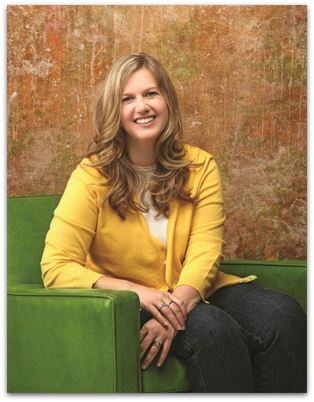 Author Website: AmyClipston.com Author Facebook: facebook.com/AmyClipstonBooks Author Twitter: @AmyClipston Author Pinterest: pinterest.com/amyclipston |
Follow meArchives
May 2024
Categories
All
|
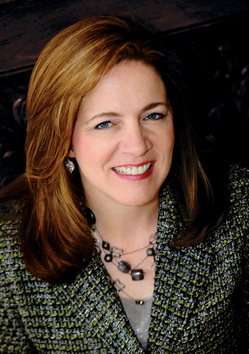
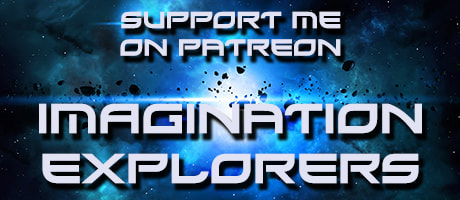
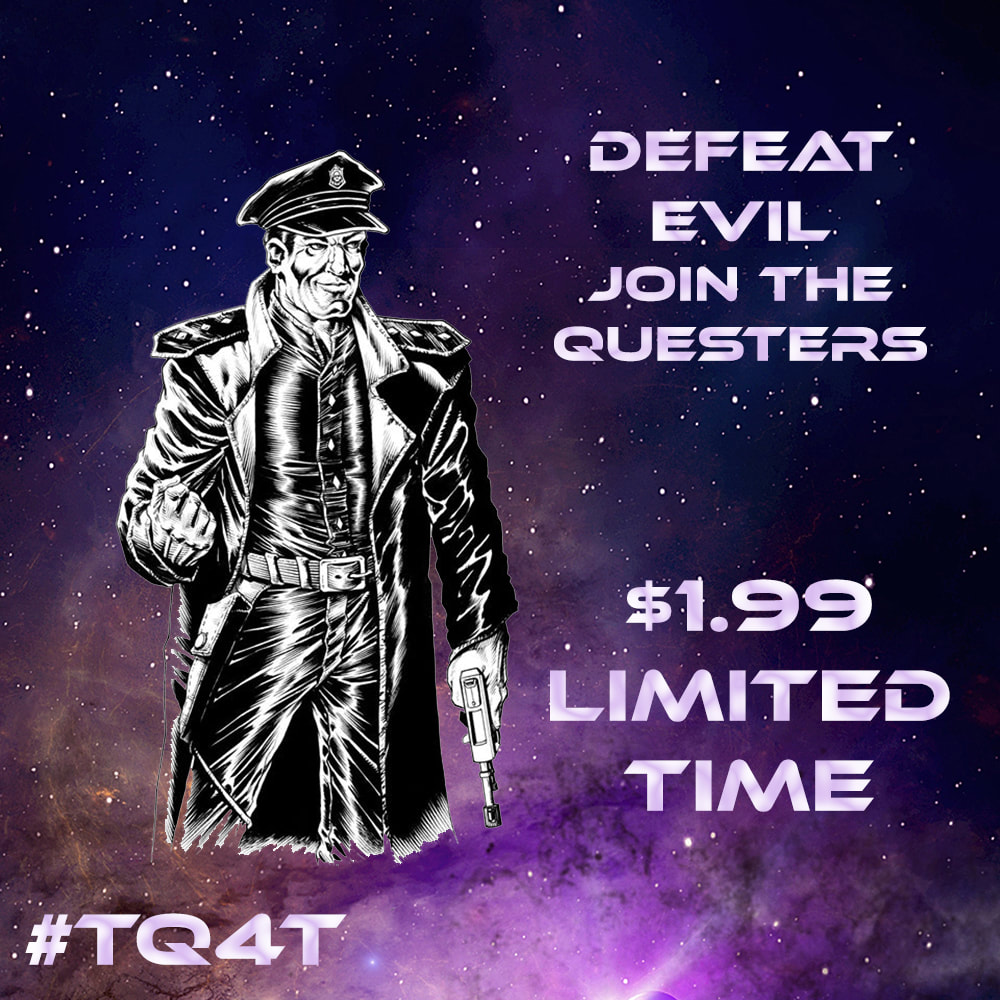
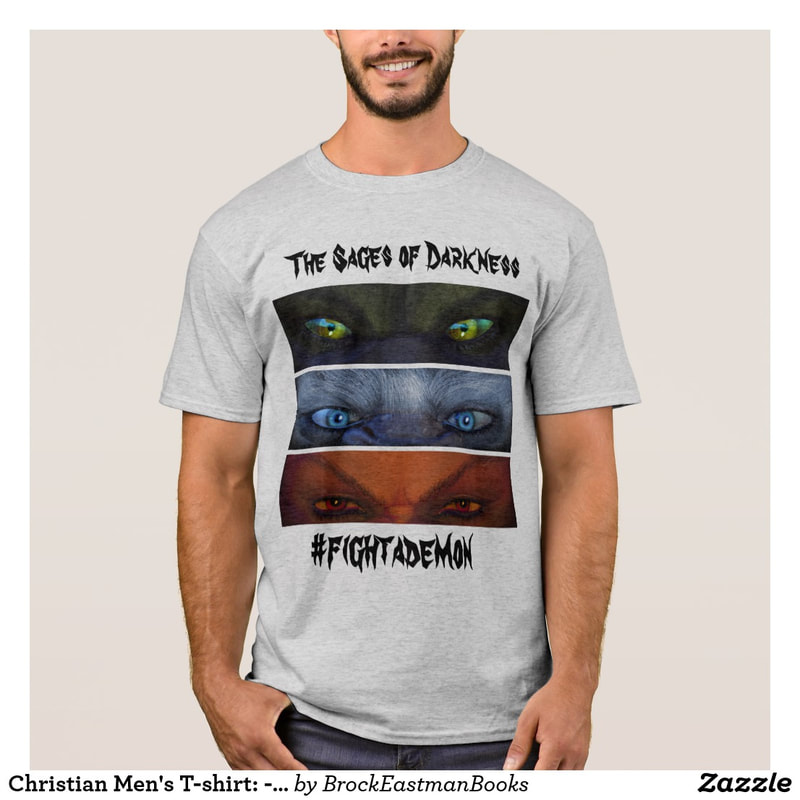

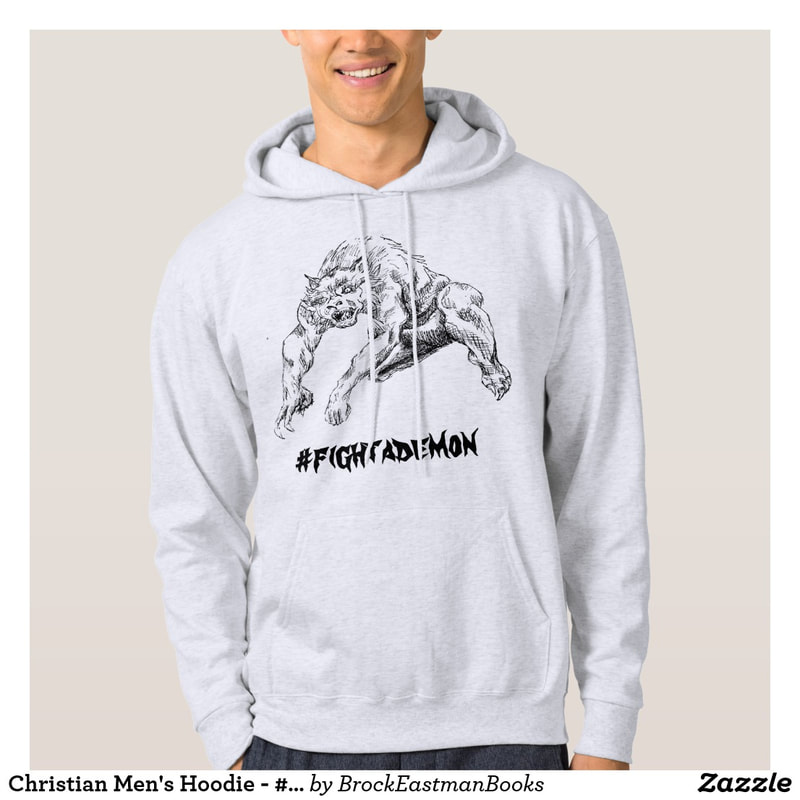

 RSS Feed
RSS Feed